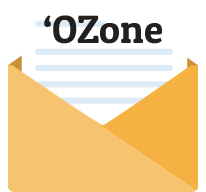Find out the latest information with our listing of recovery resources, news sources and discussion forums for Hurricanes Gustav and Ike.

The Pointe-au-Chien tribe has formed a coalition with the Bayou Lafourche, Grand Caillou and Dulac Indian communities to coordinate the relief, recovery and rebuilding efforts after Hurricanes Gustav and Ike. Please visit www.lctci.com to get updates and learn more.
Most of Louisiana's remaining native Americans reside in four centuries-old communities in the southern-most ends of Terrebonne and Lafourche Parishes, such as Pointe-au-Chien (renamed "Chenes" by non-Indians).
In this sleepy, modest fishing town, French-Indian is the language most often heard, and generations of smiles and laughter almost always accompany a good pot of jambalaya or plate of soft shell crabs. Today, these unique communities, their language and Indian culture, their lifestyle and even their identity as a separate people are deeply threatened.
On September 1, 2008, Hurricane Gustav ripped through these bayou towns with ferocious winds and a six-foot storm surge. In its wake, Gustav left a trail of ripped roofs, crumpled houses, uprooted marsh and thick mud, unparalleled elsewhere in Louisiana. Almost all of their houses sustained major damage, from being pushed off their foundation to having their roofs ripped off. Generations of entire extended families have lost everything.

If these communities are to survive, they need help in rebuilding and recovery efforts. For more information on the tribe's specific needs, see the Pointe-au-Chien tribe members' website. Right now, they could really use some energetic young people to help them muck out.
If you want to go there and assist, please coordinate through Joel Waltzer at joel@waltzerlaw.com. Donations can be made to the Pointe-au-Chien Indian Tribe, PO Box 416, Montegut, LA 70377, or the Louisiana Environmental Action Network's Gustav relief effort, by visiting its website at leanweb.org. Donations made to either the Pointe-au-Chien Indian Tribe or LEAN are tax deductible.




















Comments
Pointe aux Chennes
My family is from this community which is properly named Pointe aux Chenes or Pointe aux Chennes -- it is point of the oaks, not point of the dog.
It was always named Pointe aux Chennes. In French, chien (dog) and chennes (oak trees) sound the same so that is where I think the confusion comes from. This community was not renamed point of the oaks by so-called "non-Indians."
Chenes or Chien
When the US bought La., the Suveyor General ordered all lands surveyed to determine ownership. The first survey of this area wasn't done until reached by Sulakowski in 1859. He labeled the township range map with Lake Billiot, next to LAKE CHIEN, fed by Bayou Chien. Your "Chenes" may be old, but, like the native americans already there, it was not the first, unless you can show me something I don't have (which I would love to see).
Respectfully, Joel Waltzer
did the native americans speak French?
What is at issue is which of two French words (that sound almost exactly alike to a non French speaker) is the original name of this area: "chien" or "chennes."
Unless the native Americans spoke French, we're still not talking about what their original name for this area was -- which was no doubt in their native language. I am not debating that the native Americans were there first, but I would suggest that their original name for the area was probably not in French anyway.
The question of Chien or Chenes is a debate over whether some French settler was referring to dogs or oak trees when he named this area. Just because one Sulakowski in 1859 used "chien" doesn't mean he correctly transcribed the French word in use at the time.
According to the oral history in my family, the local understanding of the meaning was point of the oak trees -- "Pointe aux Chennes" not point of the dog.
WHO IS RIGHT OR WRONG
I too am from this community and this debate has been a long one.
The Pointe Au Chien Indian Tribe is name after " Point of the Dog".
Perhaps it is that the area is name "Point of the Oak".
Am I a Native American? Yes I am! Or you?
Do I speak French? Yes I do! Do you and are you a history buff with information that may be of use? Or would you bicker the truth. Please with debate serve facts.
Greatly Appreciated!
Thanks to all that have helped during the time of recovery.
I LOVE ME SOME JAM ON WWOZ
PEACE!
People are in Need
We're extremely appreciative of the importance of the Chennes vs Chien name issue, and we're happy that Siouxiekyue brought this to the surface. WWOZ went with the Chien spelling because that was the author's spelling, and because it was the spelling on the tribe members website. That does not mean this is the correct spelling since the issues are historical and not easily resolved.
But I do hope that we do not get distracted from the main point of the article which is that this community is in great need right now. The situation is getting worse today as they are being hit by the tropical storm force winds and storm surge caused by Hurricane Ike.
We really want to get the word out about the damage from Hurricanes Gustav and Ike to our coastal Louisiana communities and how urgent it is that we help them, and start taking serious steps toward dealing with coastal erosion and the loss of our barrier islands. These are real communities that in danger of permanently losing their homes and way of life.
Chennes or Chien?
The Petite Nations learned and spoke French after the French came to predominate the Mississippi and the area. The 1859 survey is primary evidence of the original spelling, as it was no doubt relayed to him by the inhabitants at the time of his survey. The survey does not show habitations or property divisions, and listed the property as "public lands" (property of the US given to La.), which proves those inhabitants were indian, as indians were not recognized as people in the census until the 1880's and their tribal claims were not recognized by the federal government in the absence of a formal treaty.
... and of course the help
... and of course the help is the main point. But history counts, and we owe it to those who came before to get it right, as the tribe takes pride in their name (obviously). My prayers go to all those who live in the area, tribal and not. As of this writing, they are not faring well at all. I will be there to help further very soon.
Pointe Au Chene or Chien
I visited yesterday (9-20) and found the devastation overwhelming. Not to be deterred, locals were pulling belongings and remnants of homes from the bayou. Homes are still cut off, vile water is standing in the yards, and a stench lingers in the air.
I had with me a small group of volunteers, a smoker on wheels, 500#s of Chicken, green beans and ingredients for white Alabama Jambalaya. A kind woman asked me if my jambalaya was as good as cajun jambalaya. I said of no. She replied " I didn't think so, you didn't cook the onion until it it almost burn." The second pot was darker, I cooked the onions until they almost scorched. When the onions smell smokey, you are going to have good jambalaya.
The Pointe au Chene prinipal let us set up in the school yard, we smoked chickens for hours and gave plates of food out.
I encourage everyone to get involved in some aspect of recovery efforts.
Contact joel@waltezerlaw.com If Joel doesn't give you all the information, you think you need, Go anyway. Stop at the school where you will find a principal dedicated to her school, students, teachers and community.
Claud
Trinity Presbyterian Church,
Fairhope, Alabama
The community needs help and
The community needs help and we should help them with their problems. I hope that there are people out there that would help them rebuild their community. I also hope that their community are in good shape right now.